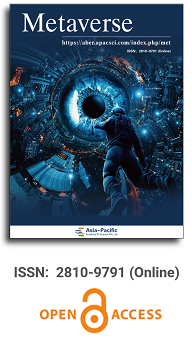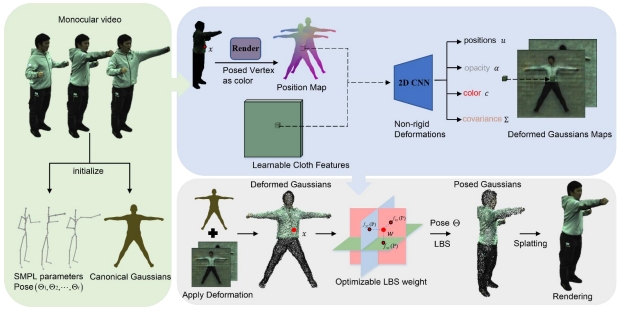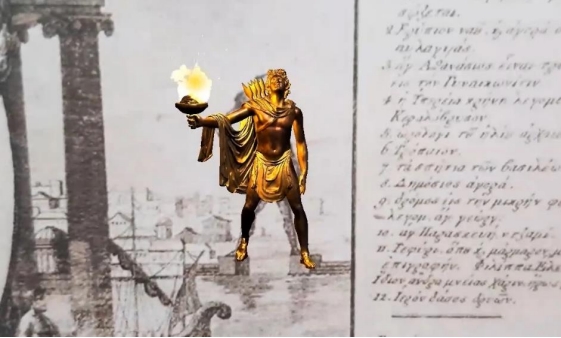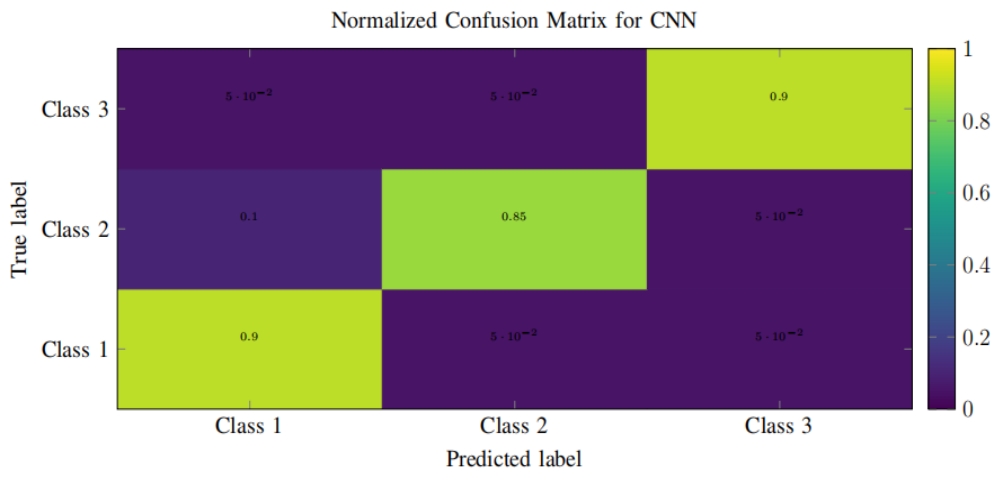
Asia Pacific Academy of Science Pte. Ltd. (APACSCI) specializes in international journal publishing. APACSCI adopts the open access publishing model and provides an important communication bridge for academic groups whose interest fields include engineering, technology, medicine, computer, mathematics, agriculture and forestry, and environment.



Virtual learning environments and digital twins: Enhancing accessibility, diversity, and flexibility in training secondary educational administrators
Vol 4, Issue 1, 2023
Download PDF
Abstract
This study investigates the potential of Virtual Learning Environments (VLEs) and digital twins to overcome geographical, scheduling, and diversity barriers in the training of secondary educational administrators. Recognizing the limitations in traditional in-person visits to schools-particularly for graduate students in rural areas and those working fulltime with dependents-and the current ethnic composition of educational administrators, where White individuals comprise 64.5% of the population in the US (71.01% for principals), this research explores how VLEs can democratize access and foster diversity in educational leadership training. Over the academic year 2022–2023, pre- and post-engagement surveys were administered to students in a Visionary and Innovative Leadership course that employed a digital twin of a middle school. The virtual environment allowed students to explore the school and interact with its mission and vision principles at their own pace, from any location, and as frequently as required. These digital tools not only offered a homogenous and repeatable experience but also enabled a deeper, self-directed investigation into how an institution’s mission and vision are operationalized within its physical environment. Findings from the study indicate that VLEs and digital twins offer considerable potential in terms of accessibility, flexibility, and diversity in educational leadership training. Through the integration of these innovative technologies, future leaders can experience immersive, interactive, and inclusive learning environments, contributing to a more diverse and effective educational leadership landscape.
Keywords
References
- Stracke CM, Burgos D, Santos-Hermosa G, et al. Responding to the initial challenge of the COVID-19 pandemic: Analysis of international responses and impact in school and higher education. Sustainability 2022; 14(3): 1876. doi: 10.3390/su14031876.
- Hennessy S, D’Angelo S, McIntyre N, et al. Technology use for teacher professional development in low-and middle-income countries: A systematic review. Computers and Education Open 2022; 3: 100080. doi: 10.1016/j.caeo.2022.100080.
- Grimes TO, Roosma SK. The impact of racial trauma: A crucial conversation in rural education. The Rural Educator 2022; 43(3): 41–53. doi: 10.55533/2643-9662.1327.
- Miljkovic I, Shlyakhetko O, Fedushko S. Real estate app development based on AI/VR technologies. Electronics 2023; 12(3): 707. doi: 10.3390/electronics12030707.
- Sepasgozar S, Khan AA, Smith K, et al. BIM and digital twin for developing convergence technologies as future of digital construction. Buildings 2023; 13(2): 441. doi: 10.3390/buildings13020441.
- Dorantes AR, Schiffecker SM, García HA. “Power does not exist, what exists is influence”: How mid‐level business and finance staff in private colleges navigate the higher education landscape. New Directions for Higher Education 2022; 2022(198): 47–62. doi: 10.1002/he.20443.
- Pashiardis P, Brauckmann-Sajkiewicz S. Unravelling the business of educational leaders in times of uncertainty. Educational Management Administration & Leadership 2022; 50(2): 307–324. doi: 10.1177/17411432211055327.
- ElSayary A. The impact of a professional upskilling training programme on developing teachers’ digital competence. Journal of Computer Assisted Learning 2023; 39(4): 1154–1166. doi: 10.1111/jcal.12788.
- Boyle F, Moolman J, Stephens R, Walsh J. REEdI-Rethinking engineering education in Ireland. In: Auer ME, Pester A, May D (editors). Learning with technologies and technologies in learning. Cham: Springer; 2022. p. 303–334.
- Raja M, Lakshmi Priya GG. Using virtual reality and augmented reality with ICT tools for enhancing quality in the changing academic environment in COVID-19 pandemic: An empirical study. In: Hamdan A, Hassanien AE, Mescon T, Alareeni B (editors). Technologies, artificial intelligence and the future of learning post-COVID-19. Cham: Springer; 2022. p. 467–482.
- Sami H, Hammoud A, Arafeh M, et al. The metaverse: Survey, trends, novel pipeline ecosystem & future directions. arXiv 2023; arXiv:2304.09240. doi: 10.48550/arXiv.2304.09240.
- Danivska V, van Tankeren W. Experiences of a virtual think tank. New ways of working, knowledge development and Virtual Reality events. Applied Business: Issues & Solutions 2022; 2022(2): 10–17.
- Tham JCK, Verhulsdonck G. Smart education in smart cities: Layered implications for networked and ubiquitous learning. IEEE Transactions on Technology and Society 2023; 4(1): 87–95. doi: 10.1109/TTS.2023.3239586.
- Mourtzis D, Angelopoulos J, Panopoulos N. A virtual collaborative platform for education in the design and simulation of aeronautics equipment: The teaching factory 5.0 paradigm. In: Proceedings of the 12th Conference on Learning Factories (CLF 2022); 2022 Apr 11–13; Singapore, Singapore. doi: 10.2139/ssrn.4071869.
- Delgado JMD, Oyedele L. Digital twins for the built environment: Learning from conceptual and process models in manufacturing. Advanced Engineering Informatics 2021; 49: 101332. doi: 10.1016/j.aei.2021.101332.
- Garay Gallastegui LM, Reier Forradellas RF. Business methodology for the application in university environments of predictive machine learning models based on an ethical taxonomy of the student’s digital twin. Administrative Sciences 2021; 11(4): 118. doi: 10.3390/admsci11040118.
- Sepasgozar SME. Digital twin and web-based virtual gaming technologies for online education: A case of construction management and engineering. Applied Sciences 2020; 10(13): 4678. doi: 10.3390/app10134678.
- King LG, McKim AJ, Raven MR, Pauley CM. New and emerging technologies: Teacher needs, adoption, methods, and student engagement. Journal of Agricultural Education 2019; 60(3): 277–290. doi: 10.5032/jae.2019.03277.
- Jiang Y, Yin S, Li K, et al. Industrial applications of digital twins. Philosophical Transactions of the Royal Society A 2021; 379(2207): 20200360. doi: 10.1098/rsta.2020.0360.
- Leng J, Ruan G, Jiang P, et al. Blockchain-empowered sustainable manufacturing and product lifecycle management in industry 4.0: A survey. Renewable and Sustainable Energy Reviews 2020; 132: 110112. doi: 10.1016/j.rser.2020.110112.
- Tao F, Qi Q, Wang L, Nee AYC. Digital twins and cyber-physical systems toward smart manufacturing and industry 4.0: Correlation and comparison. Engineering 2019; 5(4): 653–661. doi: 10.1016/j.eng.2019.01.014
- Wu Y, Zhang K, Zhang Y. Digital twin networks: A survey. IEEE Internet of Things Journal 2021; 8(18): 13789–13804. doi: 10.1109/JIOT.2021.3079510.
- Majid M, Habib S, Javed AR, et al. Applications of wireless sensor networks and Internet of Things frameworks in the industry revolution 4.0: A systematic literature review. Sensors 2022; 22(6): 2087. doi: 10.3390/s22062087.
- David J, Lobov A, Lanz M. Learning experiences involving digital twins. In: Proceedings of IECON 2018—44th Annual Conference of the IEEE Industrial Electronics Society; 2018 Oct 21–23; Washington, DC, USA. New York: IEEE; 2018. p. 3681–3686. doi: 10.1109/IECON.2018.8591460.
- Opoku DGJ, Perera S, Osei-Kyei R, Rashidi M. Digital twin application in the construction industry: A literature review. Journal of Building Engineering 2021; 40: 102726. doi: 10.1016/j.jobe.2021.102726.
- Teng SY, Touš M, Leong WD, et al. Recent advances on industrial data-driven energy savings: Digital twins and infrastructures. Renewable and Sustainable Energy Reviews 2021; 135: 110208. doi: 10.1016/j.rser.2020.110208.
- Vikhman VV, Romm MV. “Digital twins” in education: Prospects and reality (Russian). Vysshee Obrazovanie v Rossii = Higher Education in Russia 2021; 30(2): 22–32. doi: 10.31992/0869-3617-2021-30-2-22-32.
- Pernelle P, Carron T, Talbot S, Wayntal D. Digital twin and ecological transition integration in training process. In: Proceedings of 2021 International Conference on Electrical, Computer, Communications and Mechatronics Engineering (ICECCME); 2021 Oct 7–8; Mauritius, Mauritius. New York: IEEE; 2021. p. 1–6. doi: 10.1109/ICECCME52200.2021.9591099.
- Zacher S. Digital twins by study and engineering. South Florida Journal of Development 2021; 2(1): 284–301. doi: 10.46932/sfjdv2n1-022.
- Johra H, Petrova EA, Rohde L, Pomianowski MZ. Digital twins of building physics experimental laboratory setups for effective e-learning. Journal of Physics: Conference Series 2021; 2069(1): 012190. doi: 10.1088/1742-6596/2069/1/012190.
- Flaga S, Pacholczak K. Demonstrator of a digital twin for education and training purposes as a web application. Advances in Science and Technology Research Journal 2022; 16(5): 110–119. doi: 10.12913/22998624/152927.
- Pajpach M, Drahoš P, Pribiš R, Kučera E. Educational-development workplace for digital twins using the OPC UA and Unity 3D. In: Proceedings of 2022 Cybernetics & Informatics (K&I); 2022 Sep 11–14; Visegrád, Hungary. New York: IEEE; 2022. p. 1–6. doi: 10.1109/KI55792.2022.9925933.
- Sorochan T, Kartashova L, Hurzhii A. Digital twin of the postgraduate education institution as an ecosystem of professional development (Ukrainian). Continuing Professional Education: Theory and Practice 2021; 69(4): 33–41. doi: 10.28925/2312-5829.2021.4.4.
- Allam Z, Jones, DS. Future (post-COVID) digital, smart and sustainable cities in the wake of 6G: Digital twins, immersive realities and new urban economies. Land Use Policy 2021; 101: 105201. doi: 10.1016/j.landusepol.2020.105201.
- Barricelli BR, Casiraghi E, Fogli D. A survey on digital twin: Definitions, characteristics, applications, and design implications. IEEE Access 2019; 7: 167653–167671. doi: 10.1109/ACCESS.2019.2953499.
- David J, Lobov A, Lanz M. Attaining learning objectives by ontological reasoning using digital twins. Procedia Manufacturing 2019; 31: 349–355. doi: 10.48550/arXiv.2304.09240.
Supporting Agencies
Copyright (c) 2023 James Hutson, Robert Steffes, Joe Weber

This work is licensed under a Creative Commons Attribution 4.0 International License.

This site is licensed under a Creative Commons Attribution 4.0 International License (CC BY 4.0).

Prof. Zhigeng Pan
Professor, Hangzhou International Innovation Institute (H3I), Beihang University, China

Prof. Jianrong Tan
Academician, Chinese Academy of Engineering, China
Conference Time
December 15-18, 2025
Conference Venue
Hong Kong Convention and Exhibition Center (HKCEC)
...
Metaverse Scientist Forum No.3 was successfully held on April 22, 2025, from 19:00 to 20:30 (Beijing Time)...
We received the Scopus notification on April 19th, confirming that the journal has been successfully indexed by Scopus...
We are pleased to announce that we have updated the requirements for manuscript figures in the submission guidelines. Manuscripts submitted after April 15, 2025 are required to strictly adhere to the change. These updates are aimed at ensuring the highest quality of visual content in our publications and enhancing the overall readability and impact of your research. For more details, please find it in sumissions...






.jpg)
.jpg)

